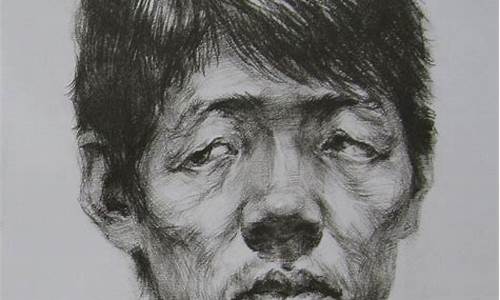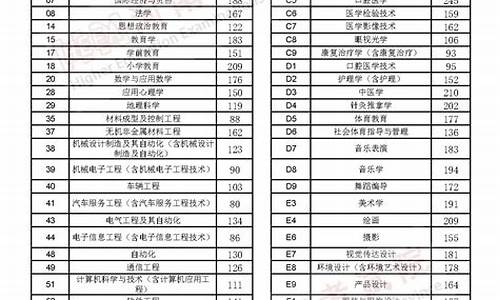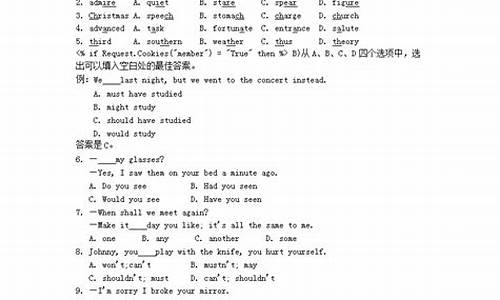您现在的位置是: 首页 > 教育政策 教育政策
2017山西英语中考试卷图片,2017高考山西英语试题
tamoadmin 2024-07-20 人已围观
简介1.2017年使用全国卷1的省份有哪些2.2017高考英语语法填空分类试题3.2017年高考英语词汇详解:persuade陷阱题解析4.2017年高考英语备考:关系代词副词的区别5.高考领航2017英语答案大全完型主要看三项:看文章技巧,做题方法,以及如何提高准度与速度。做完形填空时一定要先看文章后做题,我对猜选项这种方式乐此不疲,“合契若一”之时,那种自得着实莫可言说!做完后可适当再看一遍,有时
1.2017年使用全国卷1的省份有哪些
2.2017高考英语语法填空分类试题
3.2017年高考英语词汇详解:persuade陷阱题解析
4.2017年高考英语备考:关系代词副词的区别
5.高考领航2017英语答案大全

完型主要看三项:看文章技巧,做题方法,以及如何提高准度与速度。做完形填空时一定要先看文章后做题,我对猜选项这种方式乐此不疲,“合契若一”之时,那种自得着实莫可言说!做完后可适当再看一遍,有时连贯起来会发现理解错误。
2017全国卷3高考英语完形填空答题套路
英语完形填空答题套路:
完形解题包括两个方面:一方面是读懂文章,另一方面是选对选项。读懂文章考查的是理解能力,选对选项则考查的是写作中遣词造句的能力。在解题时要把这两种能力综合运用。要读懂文章,首先要把握文章的体裁。比如记叙文,要把握文章的故事线和情感线,尤其关注转折点。比如说明文,要明确作者的思路。选对选项,要牢记选择"最佳"。完形的答案或许两个都对,但肯定有一个更好。根据上下文的线索,加上对词义的辨析、考虑固定搭配,选择最佳选项。
完形填空的选项词中如果有生词的,要优先巩固记忆。可以筛查历年真题和近两年一二模题中的选项词,单独摘录出来优先记熟。一般来说,完形高频词的数量在1000左右,远低于考纲词的数量。对于其中一词多义、动介词组的情况,也要多加注意,尤其是要拿高分的同学。
以上《2017全国卷3高考英语完形填空分值及答题套路 万能解题方法技巧与公式模板》由高三网小编整理。学好英语,其实并不难,基础题目能弄会,弄透,能快速准确地落到卷面上,就有120分的希望。英语稳住这个成绩,就不会给整个高考拉后腿。
2017年使用全国卷1的省份有哪些
不一样,试卷选用情况如下:
全国I卷(全国乙卷):河南、河北、山西、安徽、湖北、湖南、江西、广东、福建、山东(注:2017年山东省仅英语、综合两科使用全国卷,语文、数学两科仍自主命题)
全国II卷(全国甲卷):黑龙江、吉林、辽宁、内蒙古、宁夏、甘肃、新疆、青海、西藏、陕西、重庆、海南(注:2017年海南省仅语文、数学、英语三科使用全国卷,物理/政治、化学/历史、生物/地理三科仍使用教育部为其单独命题的分科试卷)
全国III卷(全国丙卷):贵州、广西、云南、四川
自主命题:北京、天津、江苏、浙江、上海、山东(仅语文、数学两科)。
扩展资料不得参加高考的情形:
(1)具有高等学历教育资格的高校的在校生;或已被高等学校录取并保留入学资格的学生;
(2)高级中等教育学校非应届毕业的在校生;
(3)在高级中等教育阶段非应届毕业年份以弄虚作手段报名并违规参加普通高校招生考试(包括全国统考、省级统考和高校单独组织的招生考试)的应届毕业生;
(4)因违反国家教育考试规定,被给予暂停参加普通高校招生考试处理且在停考期内的人员;
(5)因触犯刑法已被有关部门取强制措施或正在者。
百度百科——2017年普通高等学校招生全国统一考试
2017高考英语语法填空分类试题
1、2017年高考使用全国Ⅰ卷的省份:
福建、河南、河北、山西、江西、湖北、湖南、广东、安徽
2、山东省部分科目使用全国Ⅰ卷:
全国Ⅰ卷:外语、文综、理综, 自主命题:语文、文数、理数
另:
1、全国Ⅱ卷:甘肃、青海、内蒙古、黑龙江、吉林、辽宁、宁夏、新疆、西藏、陕西、重庆
2、全国Ⅲ卷:云南、广西、贵州、四川
3、海南省:全国Ⅱ卷(语、数、英)+单独命题(政、史、地、物、化、生)
4、江苏省:全部科目自主命题
5、北京市:全部科目自主命题
6、天津市:全部科目自主命题
7、上海市:全部科目自主命题
扩展资料全国卷,它是教育部考试中心组织命制的适用于全国大部分省区的高考试卷,目的在于保证人才选拔的公正性。从2016年开始,全国Ⅰ、Ⅱ、Ⅲ卷分别改称为全国乙、甲、丙卷。小语种(日语/俄语/法语/德语/西班牙语)高考统一使用全国卷,各省均无自主命题权,且不分甲乙丙卷。
在新课程标准改革之后,全国根据是否实行新课标划分出了“课标卷”与“大纲卷”。一些地区的自主命题权被收回,2013年起“课标卷”分为Ⅰ卷和Ⅱ卷(2016年起Ⅰ卷改称乙卷,Ⅱ卷改称甲卷),2016年在此基础上新增丙卷,被不同的地区所使用,总的来说新课标乙卷的难度比新课标甲卷难度大,而丙卷难度和甲卷相当。
而使用大纲卷的地区逐渐减少,2015年大纲卷彻底退出历史舞台。自主命题造成一些负面影响,包括难度不稳定,试题质量下降等,因此,教育部自2014年公布高考改革方案后,逐步增加了使用全国卷的省份,至2018年共有26个省份回归全国卷。
使用独立命题的省市也能在部分科目上用全国统一试题,例如江苏卷英语听力部分一直用全国Ⅰ卷,浙江省在2017年高考改革后英语科目使用全国卷。所有小语种(日语、俄语、法语、德语、西班牙语)高考统一使用全国卷,各省均无自主命题权。
参考资料:
2017年高考英语词汇详解:persuade陷阱题解析
语法填空题作为一种新型题目,重点考察的是学生的词汇掌握能力、词语辨析、单句理解能力,这就对学生英语综合能力的应用提出了更高的要求。要下面是我为大家推荐的2017高考英语语法填空分类试题,仅供大家参考!
高考英语语法填空分类试题
一、考查词形转换
1. He must be (mental) disabled.
2. His teacher took a deep drink, smiled (warm), and thanked his student very much for the sweet water.
3. We drank together and talked (merry) till far into the night.
4. One Sunday morning in August I went to a local musical festival. I left it early because I had an ointment (late) that day.
5. This proverb is saying we he to let things go in their (nature) course.
6. But Jane knew from past experience that her (choose) of ties hardly ever pleased her father.
7. Mary felt (please), because there were many empty seats in the room.
8. ?That would be a very (reason) thing to do in a big city, but it could destroy a small village like ours,? Nick said.
9. ?But such a small thing couldn?t (possible) destroy a village.?
参考答案:1. mentally 2.warmly 3.merrily 4.later 5.natural
6.choice7. pleased 8.reasonable 9.possibly
二、考查非谓语动词
1. He spit it out, (say) it was awful.
2. I got on the bus and found a seat near the back, and then I noticed a man (sit) at the front.
3. He suddenly eared in class one day, (wear) sun glasses.
4. ?In the beginning, there was only a very small amount of unfairness in the world, but everyone added a little, always (think) that it was only small and not very important, and look where we he ended up today.?
5. While she was getting me (settle) into a tiny but clean room, the head of the village was tying up his horse to my car to pull it to a small town some 20 kilometers away where there was a garage.
6. For example, the proverb, ?plucking up a crop (help) it grow?, is based on the following story.
7. She wished that he was as easy (please) as her mother, who was always delighted with perfume.
参考答案 1-7: saying sitting wearing thinking settled to help to please
三、考查谓语动词时态及语态
1. The sun was setting when my car (break) down near a remote and poor village.
2. Besides, shopping at this time of the year was not a pleasant experience: people stepped on your feet or (push) you with their elbows (肘部), hurrying ahead to get to a bargain.
3. He walked in as if he (buy) the school.
4. Her mother was excited. ?Your father has at last decided to stop smoking,? Jane____ (inform).
5. Suddenly, he (find) that he had run out of salt.
参考答案 1-5 :broken pushed had bought was informed found
四、考查形容词或副词的比较级
1. The teacher replied, ?You tasted the water. I tasted the gift. The water was simply the container for an act of kindness and love. Nothing could be (sweet).?
2. He was very tired after doing this for a whole day, but he felt very hy since the crop did ?grow? (high).
3. It might he made it a little (hard) for everybody because it meant they had to turn around, but that didn?t stop the kids in the class.
参考答案 1-3 :sweeter higher harder
高考英语语法填空答题技巧
一、已给单词提示题型的技巧
此类题可以考查学生对单词形式变化的掌握程度。单词形式变化主要有两种,一是词的形、数、式的变化,一是词的派生变化。在判断出词的变化之后还应该进一步审题,看是否需要使用复合的变化形式,这一点是很重要的。
技巧一:名词形式变化。
名词的形式变化主要有单数、复数、所有格的变化。
例:There are many students living at school,the(child) houses are all far from schoo1.
由students一词可以判断出横线处应填复数,且作为houses的定语,所以应用其所有格形式,故答案为child的复合变化形式? 复数的所有格children?s。
技巧二:动词形式变化。
动词的形式变化比较多,有谓语的变化(时态、语态、语气),有非谓语的变化(不定式、动名词、现在分词、过去分词)。
例:A talk(give) tomorrow is written by Professor Zhang.
句中的is written是整句的谓语,所以横线所在的动词应当用作非谓语。从tomorrow可以看出,报告是?将来?作的,故用不定式;且报告是give动作的承受者,故可以判断出横线所在处用give的不定式被动式?to be given。
技巧三:代词形式变化。
代词形式变化通常是与人称变化有关的三大类五小类,即人称代词(主格和宾格)、物主代词(形容词性和名词性)、反身代词。另外还有几个不定代词的形式变化,如no one/none、other/another等。
例:The king decided to see the painter by(he).
由介词by可以看出,横线处应填反身代词himself。
技巧四:形容词、副词比较级变化。
英语中大部分形容词和表方式的副词都有原级、比较级和最高级的变化。构成比较级和最高级的方式,或通过加后缀一er和.est,或在词前Imore/less和most/least,且形容词的最高级还要冠以the。
例:I am (tall)than Liu Wen.He is the tallest students in my class.
此题后句交代了LiuWen是班上最高的学生,那?我?肯定比他矮,所以不能用taller,只能用表示程度不如的?less tall?。
技巧五:数词形式变化。
数词的形式变化包括基数词、序数词,或加后缀一、ty的变化,甚至还有作分母用的序数词的单复数形式,以及one/two的特殊变化形式 once/twice
例:To my three sons I lee my seven horses.My eldest son shall take a half,my second son shall take a (three).
从上下文连续起来理解,这是一个分马的,大儿子分得a half,也就是?一半?或?二分之一?,那么二儿子应该得?三分之一?,所以要填入作分母的序数词?third?才能命中目标。
技巧六:词的派生。
词的派生现象在英语单词中是很常见的,派生现象主要发生在名词、动词、形容词、副词四种词中。这种题型还有可能检测学生对词根、前后缀、派生词的掌握。
例:Lious lost his wallet yesterday,SO he was very____(hiness).
在这道题中,学生很容易判断出该用形容词;钱包丢了,人应该是不开心的,所以要再加个前缀un,就成了unhy。
2017年高考英语备考:关系代词副词的区别
高考英语词汇详解:persuade陷阱题解析
persuade是“说服”还是“设法说服”呢?请看题:
I _____ him not to go abroad, but he wouldn’t listen.
A. persuaded B. tried to persuade
C. he persuaded D. was persuaded
陷阱 容易误选A。
分析 正确答案为B。persuade 的真正意思是“说服”,而不是“设法说服”,要表示后者的意思英语应用 try to persuade 。如:
Who persuaded you to join the club? 谁劝说好你参加这个俱乐部的?
The salesman persuaded us to buy his product. 推销员劝说好我们购买他的产品。
I couldn’t persuade him to change his mind. 我没法劝说他改变主意。
The salesman persuaded us to buy his product. 推销员说服我们买了他的产品。
Who persuaded you to join the society? 谁劝说你参加这个协会的?
Try as I would, I could not persuade him to give up the idea. 尽管我努力这样做,我却没能劝说他放弃这个想法。
He tried to persuade him to change his mind. 他设法劝说他改变主意。
I want to persuade her to overseas with me. 我想劝说她跟我到海外去。
类似地:
kill 的意思是“杀死”,不表示“设法杀死”,要表示后者的意思英语用 try to kill。
prevent 的意思是“阻止”,不表示“设法阻止”,要表示后者的意思英语用 try to prevent。
高考领航2017英语答案大全
一、 关系代词和关系副词的区别
1、关系代词(that, who, whom, whose, which)所代替的先行词是人或物的名词或代词,并在句中充当主语、宾语、定语等成分。
例1. Is he the man who/that wants to see you?(who / that在从句中作主语,指人)
例2. He is the man whom/ that I saw yesterday.(whom / that在从句中作宾语,指人)
例3. They rushed over to help the man whose car had broken down.(whose在句中作定语,指人)
例4. Please pass me the book whose (of which) cover is green.(whose在句中作定语,指物。若指物,它还可以同of which互换)
例5. The package (which / that) you are carrying is about to come unwred. 你拿的包快散了。(which / that在句中作carry的宾语,指物)
2、关系副词(when, where, why, that)可代替的先行词是时间、地点或理由的名词,在从句中作状语。关系副词when, where, why的含义相当于"介词+ which"结构,因此常常和"介词+ which"结构交替使用。
例6. Beijing is the place where (in which) I was born.
例7. Is this the reason why (for which) he refused our offer?
例8. His father died the year (that / when / in which) he was born.
例9. He can’t find the place (that / where / in which) he lived forty years ago.
二、 判断用关系代词和关系副词
方法1: 用关系代词,还是关系副词完全取决于从句中的谓语动词。及物动词后面无宾语,就必须要求用关系代词;而不及物动词则要求用关系副词。请改错:
1. This is the mountain village where I visited last year.
2. I will never forget the days when I spent in the countryside.
习惯上总把表地点或时间的名词与关系副词 where, when联系在一起。此两题错在关系词的误用上。句1和句2的where, when都应改为which.。
方法2: 准确判断先行词在定语从句中的成分(主、谓、宾、定、状),根据第一点(区别),也能正确选择出关系代词/关系副词。
例10.This museum is ___ you visited a few days age?
A. where B. that C. on which D. the one
例11. This is the museum ____ the exhibition was held.
A. where B. that C. on which D. the one (答案:例1 D,例2 A)
在例10中,所缺部分为宾语,而where, that, on which都不能起到宾语的作用,只有the one既做了主句的表语,又可做从句的宾语,可以省略关系代词,所以应选D。
而例11中, 主、谓、宾俱全,从句部分为句子的状语表地点,既可用副词where,又因 in the museum词组,可用介词in + which 引导地点状语。而此题中,介词on 用的不对,所以选A。
关系词的选择依据在从句中所做的成分,先行词在从句中做主、定、宾语时,选择关系代词 (who, whom, that, which, whose); 先行词在从句中做状语时,应选择关系副词 ( where 地点状语,when 时间状语,why 原因状语)。
方法3:当先行词是all, everything, anything, nothing,the one, much, few, any, little等,或先行词是形容词级时,或在there be 句型中,或当先行行词既有人又有物时,关系代词用that, 而不用which。
例12. Finally, the thief handed everything that he had stolen to the police.
例13. The soldiers and their guns that we sent to the front were lost.
方法4:在引导非限定性定语从句时,和在介词后不能用that,应用which。
例14.(错) The tree, that (改为which)is four hundred years old, is very famous here.
例15.We depend on the land from which we get our food.
一、。 1.A 2.C 3.A 4. B 5. D
二、 1. He you ever swum 2. he hasn’t visited 3. hasn’t won any prizes 4. I’ve alwayswanted to help you 5. has already invite us to trel 三、 1. It’s over 550metres. 2. To take in thebreath-taking view. 3. By rotating once every 72 minutes. 4. Three. / 3. 5. Some information about the CN Tower.
四、。 1.D 2.B 3.D 4.A 5.B 6.B 7.D 8.A 9.B 10.B
五、
Dear Tony, How are you? I’m hing a wonderful timein Beijing now. I he done many interesting things here. I he been to manyplaces of interest. I he visited the Tian’anmen Square, the Palace Museumand the Great Wall. I he taken many nice photos of these famous places. I’llsend some to you with this email. I he also enjoyed different kinds ofChinese food. I’ve tried dumplings, noodles and roast duck. They are all verydelicious. I think Beijing is one of the biggest and busiestcities in the world. There’s a lot to see and do here. I hope we can visit Beijing together nexttime. Yours, Tom









